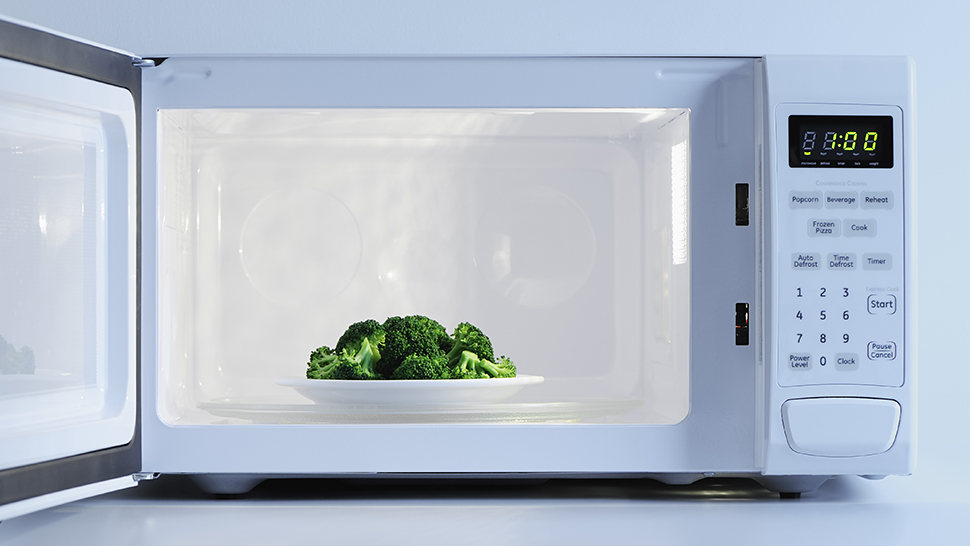Does microwaving food reduce its nutritional value? Is there a cooking method that best preserves the nutrients in food?

What’s the buzz?
Does microwaving food reduce its nutritional value? Despite widespread use and leading health organizations’ conclusions that microwaves are safe, many still have doubts that microwaved foods are a healthy and safe way to cook meals.
What does the science say?
Before we can dig into the healthfulness of microwaved meals, it is first important to know how microwaves work. (Stay with us.) Microwave ovens cook by emitting short-radio energy waves — not to be confused with “radioactive” waves — that cause the water molecules in food to vibrate and release thermic energy, or heat. The heat released by the energized water molecules cooks food faster than more traditional methods.
Here’s where it gets interesting, for those of us science nerds out there. Any form of cooking applies heat, which reduces the amounts of the nutrient available. Some nutrients are more susceptible to heat than others — for example, vitamin C is particularly sensitive when exposed to heat. Also, the introduction of water can cause nutrients to leach into the water, particularly when foods are boiled. So, the cooking methods that allow our foods to retain the most nutrients are the ones that require the shortest heating time and the least amount of water. And that means microwaving foods is actually one of the better cooking methods to preserve nutrients, along with sauteing, steaming, and grilling. Who would have thought?
Although it’s true that all cooking methods may cause a small amount of nutrient loss, cooking with heat does have some nutritional benefits. Heat inherently changes the makeup of nutrients, and sometimes for the better. In fact, studies show that some nutrients become more available after being heated. For instance, the concentrations of lycopene, flavonoids, and polyphenols in tomatoes is considerably higher when heated than when they are eaten raw. In addition, the denaturing of proteins not only makes them more digestible but heat also kills bacteria that may cause foodborne illness. Heat changes foods both for better and worse, but it’s important to realize that the nutrient losses caused by cooking are minimal.
What’s the takeaway?
Vegetables are good for you almost any way you prepare them — whether raw, pan-fried, steamed, grilled, baked, or microwaved — and most of us are not getting enough of them. Want to incorporate more vegetables into your diet? Check out our library of recipes featuring seasonal fruits and vegetables to put more plants on your plate. While microwaving is not zapping the nutrients from food, just remember that the texture and flavor of microwave cooked meals leave much to be desired compared to other cooking methods. Rubbery chicken, mushy vegetables, and dried-out pasta — we’re looking at you! Try heating foods such as soups, stews, and casseroles in the microwave and saving foods such as meats or vegetables for the oven or stovetop.